Fellowships
Physicians | Neurostimulation (tDCS)
Physician Fellowship
The Fellowship in Hospice and Palliative Medicine of Montefiore Medical Center/Albert Einstein College of Medicine at MJHS is ACGME-accredited and offers a unique training experience, including rotations with inpatient consultation services in both a hospital and nursing homes, community-based hospice, two ambulatory practices, and long-term care. The faculty, which includes physicians in multiple specialties (Internal Medicine, Family Medicine, and Pediatrics) and others in nursing, social work, chaplaincy, psychology, and research, trains three Fellows per year.
APPLICATION
Applications are now closed for the 2024-2025 academic year. All available fellowship positions have been filled. Please submit a complete ERAS application, including a curriculum vitae, personal statement, three letters of support, and test scores to [email protected].
MJHS Hospice and Palliative Care
55 Water Street, 46th Floor
New York, NY 10041
Montefiore Medical Center/Albert Einstein College of Medicine sponsors two Fellowships in Hospice and Palliative Medicine. The MJHS Fellowship in Hospice and Palliative Medicine (ACGME #5403512112 Montefiore Medical Center/Albert Einstein College of Medicine at MJHS Hospice and Palliative Care Program) accepts 3 physicians per year.
The clinical ‘home’ for the MJHS Fellowship in Hospice and Palliative Medicine is MJHS Hospice and Palliative Care, a participating agency of MJHS—a large not-for-profit health system in New York. MJHS Hospice and Palliative Care serves all the boroughs of New York City (except Staten Island) and Nassau County. During Fellowship, trainees rotate in varied inpatient and community-based sites served by MJHS Hospice and Palliative Care and complete hospital-based rotations at Montefiore Medical Center.
The Program Director for the MJHS Fellowship in Hospice and Palliative Medicine is Kerrianne P. Page, MD, HMDC, and the Associate Program Directors are Michael Mencias, MD, FAAHPM, and Myra Glajchen, DSW. The faculty includes physicians in multiple specialties (Internal Medicine, Family Medicine, Neurology, and Pediatrics), as well as faculty in nursing, social work, chaplaincy, pharmacy, psychology, and research.
Completion of the year-long Montefiore Medical Center/Albert Einstein College of Medicine at MJHS Hospice and Palliative Care Program is intended to accomplish the following goals and objectives:
- Fellows will acquire competencies relevant to the subspecialty practice of Hospice and Palliative Medicine. These competencies encompass patient care, medical knowledge, practice-based learning, communication skills, professionalism, and systems-based practice. They will be demonstrated through expertise in the following practices:
- Communication, serious illness discussions, and advance care planning
- Management of physical aspects of care in populations with serious chronic illnesses, including management of pain, other symptoms, and disorders common in advanced illness
- Management of psychosocial and psychiatric aspects of care, including management of neuropsychiatric comorbidities, psychiatric comorbidity, and grief and bereavement
- Management of spiritual and existential aspects of care, including the assessment of spiritual distress
- Management of the patient and family through the period of active dying
- Ethical and legal practices during management of advanced illness
- Culturally competent care of populations with advanced illness
- Using hospice as a system to provide specialist palliative care
- Using quality improvement in populations with advanced illnesses
- Fellows will evaluate at minimum 300 new patients over 12 months
- Fellows will follow patients longitudinally and across settings
- Fellows will perform home visits
- Fellows will manage the care of patients in a long-term care facility
- Fellows will participate in a communication skills training
- Fellows will participate in weekly didactic lectures and interdisciplinary team meetings, and regularly scheduled journal clubs, clinical conferences, and self-reflection seminars
- Fellows will meet regularly with faculty, the Associate Program Director, and the Program Director to discuss their performance and self-care
Clinical Curriculum
The MJHS Fellowship in Hospice and Palliative Medicine offers a unique training experience across diverse practice sites. Rotations are scheduled in 4-week blocks; there are 13 blocks in the year (MJHS Block Schedule). Fellows take call throughout the year; most call is taken from home.
Inpatient Consultation Team: Four Blocks
Fellows spend four blocks on the inpatient consultation service at Montefiore Medical Center, one of the largest tertiary teaching hospitals in the country. The interdisciplinary palliative care team assesses and manages inpatients with complex medical and psychosocial problems. The patient population is very diverse in race, ethnicity, culture, and socioeconomic status.
Rotation Goals: Fellows will have progressive responsibility for the medical aspects of the palliative plan of care, gaining experience in the conduct of family meetings, end-of-life decision-making, and hospice eligibility review. The on-site preceptor for this rotation will be Serife Eti, MD, and other attendings assigned to the Palliative Care consultation service.
Dedicated Inpatient Unit: One Block
Fellows spend one block in the dedicated inpatient unit at Montefiore Medical Center. The 10-bed inpatient hospice and palliative care unit, located at the Moses Division, offers a multidisciplinary team approach to patient care. The unit team includes an attending, physician assistants, nurses, and a social worker.
Rotation Goals: Fellows will manage complex medical and psychosocial problems associated with advanced illness and will improve skills in effective teamwork and communication. There will be progressive responsibility for unit admissions, initial assessments and plans of care, medical decision-making, order writing, medical documentation, and family meetings. During this rotation, the fellow will be precepted by Serife Eti, MD, and other attendings.
Home Hospice: Four Blocks
During this rotation, Fellows become members of a hospice team and perform supervised home visits while participating in the medical oversight of the interdisciplinary plan of care. The population served is extremely diverse in terms of sociodemographics, culture, age, socioeconomic status, disease and treatment status, and other factors. Each fellow will have the opportunity to care for both adult and pediatric hospice patients in the community.
Rotation Goals: This rotation will provide a robust opportunity to learn about hospice as a health care system, including eligibility requirements, admissions processes, treatments and services provided, documentation requirements, discharges, interdisciplinary team functioning, and regulatory aspects. Preceptors for this rotation include David Adlerstein MD, Damani Taylor, MD, Fiona Bayne, MD, Michelle Newman, MD, and Michael Mencias, MD.
Facility-Based Palliative Care: Two Blocks
Fellows spend two blocks participating in palliative care consultation services at The New Jewish Home and at Isabella Center for Rehabilitation and Nursing Care. At each site, Fellows evaluate and manage consultations from patients receiving skilled care and patients receiving long-term care. The patients are highly diverse. Fellows learn the consultant’s role in facility-based practice, including symptom assessment, hospice eligibility evaluations, and discussions regarding goals of care and advance directives.
The New Jewish Home is a large not-for-profit facility located on the Upper West Side of Manhattan; it provides care to 13,000 sick and elderly patients a year through diverse programs and settings, including a long-term skilled nursing facility and a short-stay rehabilitation facility. The Isabella Center for Rehabilitation and Nursing Care is a 703-bed, not-for-profit facility in northern Manhattan. It is a member of the MJHS Health System and provides a continuum of services, including the nursing facility, senior housing, adult day care, and short-term rehabilitation.
Rotation Goals: Fellows develop skills in performing palliative care consultations in the nursing home setting, gaining expertise in symptom management and goal-setting discussions, care transitions, and the role of hospice. During this rotation, the fellow will be precepted by Tartania Brown, MD.
Long-Term Care: One Block
Fellows spend one block at the Isabella Center for Rehabilitation and Nursing Care in a long-term care rotation, gaining experience with interdisciplinary care planning and other aspects of nursing home medicine.
Rotation Goals: Fellows gain experience in the management of geriatric syndromes, complex symptom management, wound care, and end-of-life care for nursing home patients, and learn about the role of palliative care specialists in this environment. The on-site preceptor is Mohammed Butt, MD, and other attendings employed by the facility.
Elective: One Block
Fellows have elective time for one block. Electives have included Hospice Administration, Ethics, Pediatrics, Research, and Interventional Pain.
Ambulatory Care: Six or More Months
Fellows spend one day per week working in an ambulatory palliative care practice. One practice is located in the Cancer Center of Montefiore Medical Center in the Bronx, and a second practice is located in the Ambulatory Palliative Care Practice at New York Presbyterian. During this rotation, fellows work with a preceptor to assess and manage problems associated with advanced illness in the ambulatory setting. The on-site preceptor is Quinn Demarest, MD.
Rotation Goals: Fellows gain experience in ambulatory palliative care, with a focus on symptom management and goal setting and advance care planning conversations. The on-site preceptor is Dinaz Irani,MD.
Educational Curriculum
Weekly Lectures
The two Fellowships in Hospice and Palliative Medicine sponsored by Montefiore Medical Center/Albert Einstein College of Medicine jointly present weekly lectures for the trainees. The following are representative topics:
- Definitions, Domains, and Models of Palliative Care Assessment & Consultation
- Communication in Palliative Care
- Prognostication in Terminal Illness
- Hospice Fundamentals I
- Hospice Fundamentals II: The Benefit, Billing, Face-to-Face Visits
- Opioids and Cancer Pain
- Cancer Pain Syndromes
- Pediatrics in Palliative Care
- Research in Palliative Care and Hospice
- Management of Ventilator Withdrawal
- Dyspnea: Assessment and Management
- Gastrointestinal Symptoms: Assessment and Management
- Serious Illness Discussions
- Advance Care Planning
- The Family Meeting
- Level of Care Decision-Making
- Advanced Dementia: Management Issues & Hospice Admission Criteria
- Palliative Care in Advanced Neurologic Illness
- Palliative Care in Congestive Heart Failure
- Palliative Care in Advanced Neurologic Illness
- Management of Congestive Heart Failure
- Palliative Care in Advanced Neurologic Illness
- Palliative Sedation
Interprofessional Didactics
Interprofessional didactics are presented monthly to fellows and trainees from other disciplines, including social work, nursing, and pharmacy. Topics include:
- Quality Management in Hospice and Palliative Care
- Managing Interdisciplinary Team Conflict
- Psychosocial and Psychiatric Comorbidities in Palliative Care
- Cultural Considerations in Palliative Care and Hospice
- Evidence-Based Medicine: Evaluating the Research Literature
- Ambiguous Loss and Complicated Bereavement
- Saying Goodbye to Patients and Writing Condolence Notes
- Care for Children with Advanced Neurological Conditions
- Establishing Your Professional Identity After Training: Rules, Tools, and Pearls
Other Educational Sessions
- All fellows undergo communication skills training through participation in an annual Vital Talk Communication Skills Training Course
- Fellows participate in weekly IDT meetings during most rotations, including home hospice, the facility-based palliative care consultation services, and the palliative care unit
- Each fellow presents one didactic presentation and one Journal Club per year
- Fellows attend a biweekly clinical case/M&M conference moderated by the Program Director
Optional Sessions
- Fellows are invited to attend organizational meetings, including the Hospice Ethics Committee meeting and the Hospice Quality and Performance Improvement Committee meeting
Scholarly Activities Curriculum
Fellows are required to participate in scholarly activities during the fellowship. These activities include: 1) a quality improvement focused study developed in collaboration with the program director and quality staff of MJHS Hospice and Palliative Care and 2) a didactic and 3) Journal Club.
Fellows are offered the opportunity to participate in ongoing research conducted by faculty of the MJHS Institute. The Institute, established in 2014, is an academic entity focused on professional training and clinical investigation. Fellows who engage meaningfully in this work are considered co-investigators and co-authors on publications.
Physician Faculty
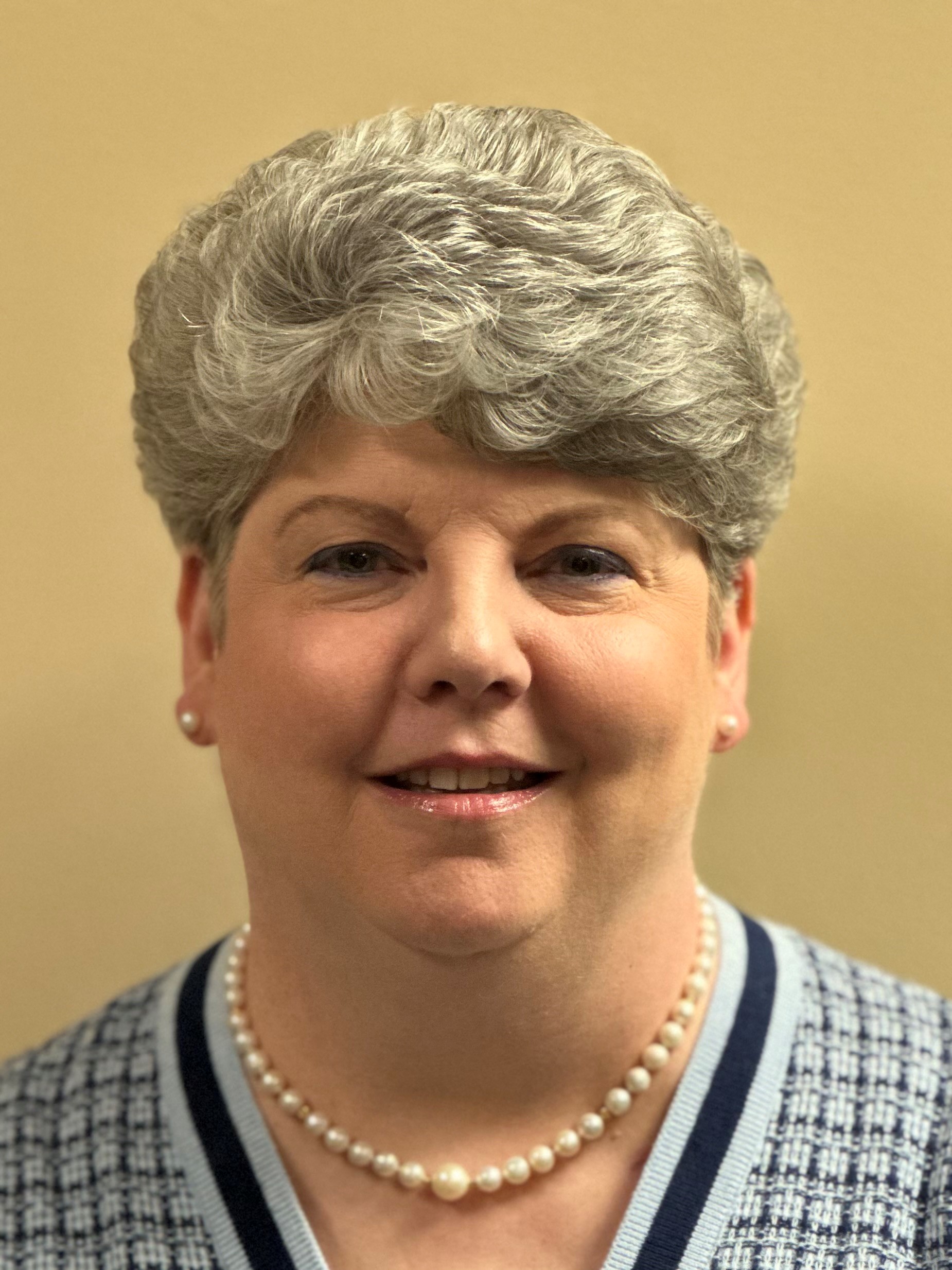
Kerrianne Page, MD
Chief Medical Officer
Fellowship Program Director
Hospice Medical Director
Internal Medicine
Hospice and Palliative Medicine
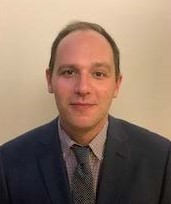
David Adlerstein, MD
Palliative Care Physician
Family Medicine
Hospice and Palliative Care

Tartania Brown, MD
Director of Palliative Care Provider Practice
Internal Medicine
Hospice and Palliative Medicine
Assistant Professor, Department of Family and Social Medicine, Albert Einstein College of Medicine
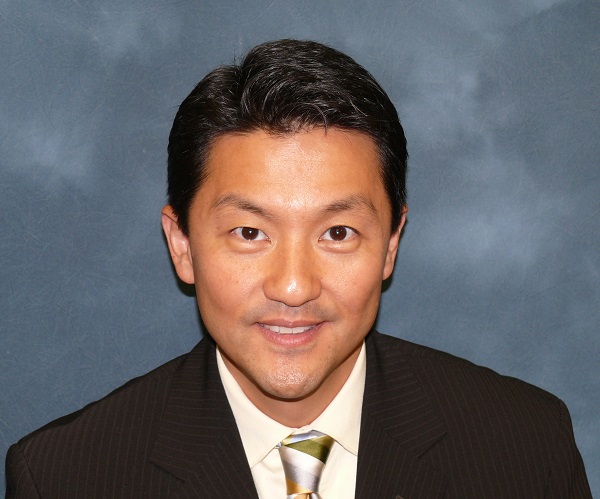
Bernard Lee, MD
Director of Hospice Medical Administration
Family Medicine
Hospice and Palliative Medicine
Assistant Professor, Department of Family and Social Medicine, Albert Einstein College of Medicine
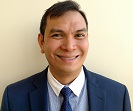
Michael Mencias, MD (Associate Program Director)
Senior Hospice Medical Director
Internal Medicine
Hospice and Palliative Medicine
Assistant Professor, Department of Family and Social Medicine, Albert Einstein College of Medicine
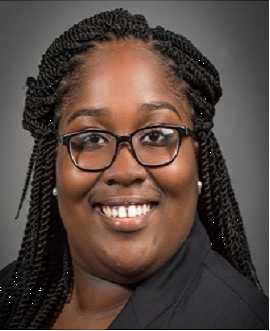
Michelle Newman, MD
Palliative Care Physician
Family Medicine
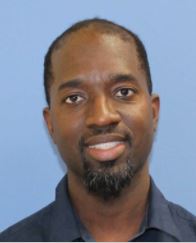
Damani Taylor, MD
Hospice Physician
Pediatrics
Hospice and Palliative Medicine
Other Faculty
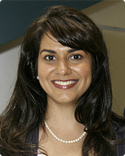
Lara Dhingra, PhD
Director of Health Disparities and Outcomes Research
Health Psychology
Associate Professor, Department of Family and Social Medicine, Albert Einstein College of Medicine
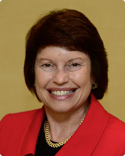
Myra Glajchen, DSW (Associate Program Director)
Director of Education and Social Work
Project Director, Educating Social Workers in Palliative and End-of-Life Care (ESPEC)
Assistant Professor, Department of Family and Social Medicine, Albert Einstein College of Medicine
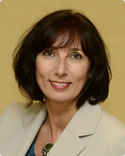
Helena Knotkova, PhD
Director of Clinical Research and Analytics
MJHS Institute for Innovation in Palliative Care
Professor of Family and Social Medicine
Albert Einstein College of Medicine
Recent MJHS Fellows
Stephen McCormick, MD
2019-2020
Northwell Health Care System, New York
Deepali Pandey, MBBS
2019-2020
University of Kentucky
Eric Cho, MD
2019-2020
T.J Regional Health, Maryland
Calvin Krom, DO
2018-2019
Vero Beach, Florida
Andrew Valdez, DO
2018-2019
Asante Health, California
Jonathan Roselman, MD
2018-2019
Rush University Medical Center, Chicago, Illinois
Christopher Flynn, DO
2017-2018
Swedish Medical Center, Seattle, Washington
Elyceia Dortch, MD
2017-2018
Kaiser Permanente, Atlanta, Georgia
Pouyan Namakydoust, MD
2020-2021
Montefiore Medical Center, Bronx, NY
Tina Wexler, MD
2020-2021
Montefiore Medical Center, Bronx, NY
Swathi Gadangi, MD
2020-2021
MJHS Hospice and Palliative Care, New York, NY
Jafri Hera, DO
2021-2022
IU Health West Hospital, Avon, IN
Michelle Newman, MD
2021-2022
MJHS Hospice and Palliative Care, Brooklyn, NY
Nitish Nandu, MD
2021-2022
University Hospital, Columbia, MO
Ariel Daube, MD
2022-2023
VNS Hospice, New York, NY
Luke Donnelly, MD
2022-2023
Northwell Health, Westchester, NY
Angels Nguyen, DO
2022-2023
Kaiser Permanente, Oakland, CA
Sangmin Chang, MD
2022-2023
Complex Care Clinic, Palo Alto, CA
The MJHS Institute is grateful to the Y.C. Ho/Helen and Michael Chiang Foundation, The Hearst Foundations, the American Academy of Hospice and Palliative Medicine/Kindred Gentiva Hospice Foundation, and The Milbank Foundation for their generous support of our Interprofessional Hospice and Palliative Care Fellowship Program.
Neurostimulation Fellowship Program
The MJHS Institute for Innovation in Palliative Care offers a neurostimulation training intensive, endorsed by the MJHS Institute, City College of New York and the University of Florida. It is the only comprehensive tDCS training program in the United States.
The Fellowship is an intensive, 5-day program designed to provide comprehensive theoretical background and practical experience. The objective of the program is to acquire the knowledge and skills needed for tDCS protocol design and application. It is distinguished by its extensive hands-on experience and in-depth learning approach, including interactive lectures, facilitated discussion, demonstrations, hands-on step-by-step exercises, individual projects, and final theoretical test and practical exam.
The Fellowship utilizes versatile educational elements from basic to expert level. The faculty are highly experienced.
Directors:
Helena Knotkova, PhD
MJHS Institute for Innovation in Palliative Care
Email: [email protected]
Marom Bikson, PhD
City College of New York
Adam Woods, PhD
University of Florida
Curriculum
The Fellowship is an intensive, 5-day program designed to provide comprehensive theoretical background and practical experience necessary to acquire the knowledge and skills for tDCS protocol design and application.
The NYC tDCS Fellowship distinguishes itself from other tDCS educational initiatives by offering extensive hands-on experience and an in-depth learning approach, including interactive lectures, facilitated discussion, demonstrations, hands-on step-by-step exercises, individual projects, and final theoretical test and practical exam.
The Fellowship utilizes versatile educational elements from basic to expert level. It is expected that even individuals highly experienced in tDCS will benefit from the advanced and comprehensive training in state-of-the-art techniques.
The NYC tDCS Fellowship provides the only comprehensive tDCS training in the United States. The Fellowship focuses on building competencies in the following areas: Principles and mechanisms of tDCS, electrode preparation and montages, stimulation parameters, protocols and targeted outcomes; safety; tDCS current modeling and dose determination; good practices in tDCS delivery; clinical and research trial design, tDCS protocol design and implementation in research/clinical trials; with specific methodologic considerations for HD-tDCS and conventional tDCS in institutional and home-based settings.
Education and training will be provided by a seasoned highly experienced team. Ideal candidates for the Fellowship are absolvents of graduate and postgraduate programs in related disciplines (medicine, bioengineering, neuroscience, nursing) and/or individuals involved in tDCS research/clinical trials and treatment. Previous practical experience with tDCS not required but preferred.
The Fellowship promotes expertise in the field of noninvasive brain stimulation.
The tDCS Fellowship is not being offered in 2024.
Application
Applications are accepted for consideration on a rolling basis until fellowship positions have been filled. For more information, please contact us at [email protected]. Application via email should include the following:
- Name, contact information, degrees completed or current enrollment
- Current affiliations including name of supervisor or collaborators as relevant to tDCS (in body of email)
- Description of experience and/or plans for tDCS, less than 150 words (in body of email)
- Complete CV (as attachment)
- Optional: Please include any questions you have about course content and any specific requests for material to be covered.
- Email the information above to: [email protected].
FELLOWSHIP COST
- Cost: $2,100. Participants who are accepted to the program will be provided with instructions for payment within 2 weeks of acceptance. Space is limited. Payment must be received before March 5,2023, or admission may be receded.
- Cost covers only attendance of the fellowship, supplies used during the fellowship, and light refreshments. All flight and local travel, hotel, meal, and other expenses are not included in this cost, and participants are required to make their own plans and accommodations.
